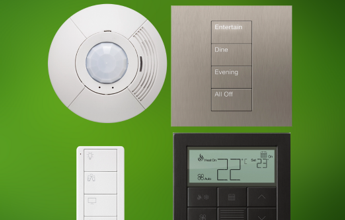Technology in 2025: Transforming the Way We Live and Work

Technology has become the foundation of modern society. From smartphones and artificial intelligence to 5G and blockchain, innovations are shaping how people communicate, work, and interact. As digital adoption continues to grow, the importance of embracing new technologies becomes critical for individuals and businesses.
This article explores the most impactful tech trends of 2025, their benefits, and what the future holds. Technology in 2025 is transforming the way we live and work, with QR code integration streamlining processes and enhancing connectivity.
Artificial Intelligence: The Core of Smart Innovation
Artificial Intelligence (AI) is one of the most powerful drivers of technological growth. By simulating human intelligence, AI enables machines to think, analyze, and solve problems.
- Healthcare: AI assists in early disease detection, drug development, and patient monitoring.
- Business: Companies use AI chatbots to improve customer service and AI analytics to forecast market trends.
- Education: Smart learning platforms personalize lessons for students based on their strengths and weaknesses.
Experts predict AI will add over $15 trillion to the global economy by 2030, making it essential to future progress.
Cloud Computing: The Digital Backbone of Business
Cloud computing has revolutionized how organizations store and manage data. Instead of investing in expensive servers, businesses now use scalable cloud platforms.
- Scalability: Companies can adjust resources instantly as demand changes.
- Collaboration: Remote teams can work together in real time.
- Cost Savings: Cloud platforms reduce infrastructure and maintenance expenses.
Tech giants like Amazon Web Services (AWS), Microsoft Azure, and Google Cloud dominate this sector, empowering businesses of all sizes to grow.
5G Connectivity: Redefining Speed and Communication
The rollout of 5G technology is unlocking new opportunities across industries. Its ultra-fast speeds and minimal latency go beyond what 4G could deliver.
- Entertainment: Gamers and streamers enjoy smoother, high-quality experiences.
- Healthcare: Surgeons can perform remote operations with precision.
- Smart Cities: Traffic, security, and energy systems run on real-time data.
By 2030, billions of devices will depend on 5G, supporting smarter and more connected lifestyles.
Internet of Things (IoT): Creating Smarter Ecosystems
The Internet of Things (IoT) connects devices, making homes, workplaces, and cities smarter.
- Homes: Smart locks, thermostats, and lighting improve convenience and security.
- Healthcare: Wearables monitor heart rate, oxygen levels, and overall fitness.
- Cities: IoT sensors optimize traffic, reduce energy use, and improve waste management.
Reports suggest that over 30 billion IoT devices will be connected worldwide by the end of this decade.
Cybersecurity: Safeguarding the Digital World
As technology advances, so do cyber threats. Protecting personal and business data is critical in today’s digital-first world.
- AI-Powered Security: Automated tools detect and block cyberattacks in real time.
- Data Encryption: Ensures secure communication and transactions.
- User Awareness: Educating people helps reduce phishing and identity theft.
With cybercrime expected to cost trillions of dollars annually, cybersecurity has become a top priority.
Blockchain: Beyond Cryptocurrency
Blockchain is often linked to Bitcoin, but its potential reaches far beyond digital money.
- Finance: Enables secure, transparent, and quick transactions.
- Supply Chain: Tracks goods from production to delivery.
- Healthcare: Keeps medical records safe from hacking.
The rise of Web3 and decentralized applications (dApps) highlights blockchain’s growing role in the future economy.
Green Technology: Innovation for a Better Planet
With climate change a global concern, green technology is shaping a sustainable future.
- Renewable Energy: Solar and wind energy reduce reliance on fossil fuels.
- Electric Vehicles (EVs): Automakers like Tesla are leading clean transportation.
- Smart Grids: AI-powered energy systems minimize waste.
Green tech ensures innovation goes hand in hand with environmental responsibility.
Emerging Technologies on the Horizon
Alongside today’s leading innovations, other technologies are rising fast:
- Quantum Computing: Unlocks solutions to complex global challenges.
- Metaverse: Creates immersive digital environments for business, gaming, and learning.
- Biotechnology: Improves healthcare, agriculture, and food security.
- Artificial General Intelligence (AGI): Machines with human-like reasoning abilities.
These emerging innovations could redefine industries within the next decade.
Conclusion
Technology in 2025 is more than convenience—it is the foundation of future progress. Artificial Intelligence, cloud computing, 5G, IoT, blockchain, and green technology are already reshaping industries and lifestyles. At the same time, cybersecurity ensures safety and trust in a digital-first world. Looking ahead, innovations such as quantum computing, biotechnology, and the metaverse promise to open even greater opportunities.
For individuals, staying updated with new technology means enjoying smarter, more efficient living. For businesses, embracing innovation is essential to growth and survival. Ultimately, technology is not just shaping the future—it is defining it.





